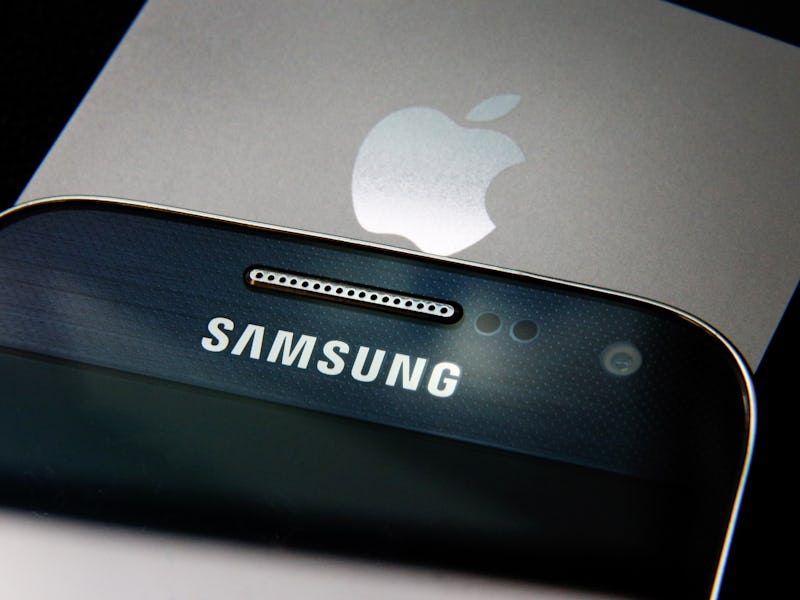Why Apple and Samsung Have Been Squabbling in Court for 5 Years
You can’t be the only one to claim rounded corners are your thing.

Apple and Samsung have been embroiled in a nasty patent dispute for five years because Apple is claiming that Samsung, like, totally copied the iPhone’s look. The case is finally headed to the U.S. Supreme Court, but at a certain point, you have to wonder if any of this alleged copyright infringement impacts you, the consumer, in any meaningful way.
Eh, not really.
Sure, it’s a big deal to these two massive companies and their shareholders. Apple accused Samsung of ripping off its pretty font with rounded corners, the bezel holding the screen on, and the way they arranged app icons in a grid. Samsung lost the case in December of last year and had to pay $548.2 million, though a Federal Circuit U.S. Court of Appeals overturned Samsung’s liability for trademark infringement (not patent violations) in February. On Tuesday Samsung is going to argue before the Supreme Court that as much of as $399 million of that fine is ridiculous. The company’s argument is that their phone was massively complicated, and such a harsh penalty for three small similarities is unwarranted.
Samsung compared it to a scenario where “an infringer of a patented cupholder design must pay its entire profits on a car,” according to The New York Times. Apple, meanwhile, is calling upon Calvin Klein and Alexander Wang to stress how important design is to consumer choice.
Maybe they have a point, maybe they don’t. That’s for the Supreme Court to decide — and it’s going to be the first design patent case they’ve heard in 120 years. Our ruling, though, is that a nearly $550 million case that went all the way to the highest court in the land is ridiculous because they’re fighting over a grid, perhaps the most basic way to organize things in the world. Your desktop on Windows 95 was a grid of applications, remember?
It's a grid.
Samsung and Apple’s fight has broader applications, this being the Supreme Court. The ruling could invalidate U.S. patent law that forces infringers to pay the owner of a design patent all their total profits from the infringing item.
Also, let’s remember who we’re dealing with here. Apple patented a paper bag.
Design, though, should benefit everyone. There’s a reason why things tend to become standardized: Because that’s what works the best. Grids work, the glass screen is nice, and these are such tiny things to the average person, who really just wants to be able to covertly pull out their phone in a meeting, quickly find the Facebook app, and tune out while their boss natters on about some inane thing.
But yeah, fight about a font for five years.